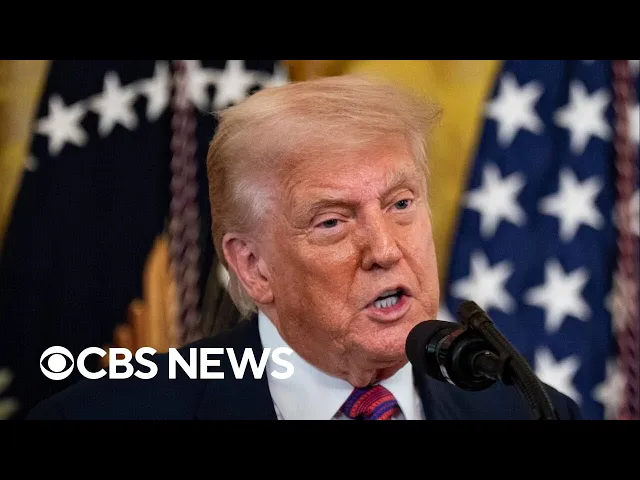Trump unveiling AI strategy that could lead to tech’s deregulation

AI deregulation looms large under Trump
In a striking pivot from the Biden administration's cautious approach, Donald Trump's potential return to the White House signals a seismic shift in America's artificial intelligence governance landscape. The former president's campaign is quietly crafting an AI strategy that would dramatically roll back regulatory frameworks, potentially unleashing a new era of technological development while raising profound questions about safety and oversight in one of our most transformative technologies.
Key Points
- Trump's AI approach centers on sweeping deregulation to accelerate American innovation and combat Chinese technological advancement
- The strategy directly opposes Biden's Executive Order 14110, which established guardrails for AI development through safety testing and federal oversight
- Former Trump officials and tech allies are driving this policy shift, framing regulation as an impediment to American competitiveness
- The stark regulatory divergence represents one of the clearest policy contrasts between the two administrations on emerging technology
The Regulation Pendulum Swings
The most revealing aspect of Trump's emerging AI strategy isn't just its deregulatory stance, but how comprehensively it seeks to dismantle the existing framework. What makes this particularly significant is the timing – as AI capabilities accelerate exponentially, the fundamental question of how to balance innovation with responsible development has never been more consequential.
This potential policy reversal comes at a pivotal moment in AI's evolution. We're witnessing capabilities advancing faster than our ability to understand their implications, with systems like GPT-4 and Claude demonstrating increasingly sophisticated reasoning abilities. The industry finds itself at a crossroads where governance frameworks established now will likely shape AI's trajectory for decades.
The contrast between the Biden and Trump approaches represents more than typical partisan positioning – it reflects fundamentally different philosophies about technology governance. Biden's executive order established a careful framework requiring safety testing, risk management, and federal oversight. Trump's team views these measures as bureaucratic obstacles hampering American competitiveness in a global AI race where China threatens to dominate.
Looking Beyond the Campaign Rhetoric
What's missing from Trump's emerging strategy is a nuanced understanding of why many AI developers themselves have advocated for thoughtful regulation. Notably, leading AI labs including OpenAI, Anthropic, and even Google DeepMind have publicly supported certain regulatory guardrails – not to stifle innovation,
Recent Videos
How To Earn MONEY With Images (No Bullsh*t)
Smart earnings from your image collection In today's digital economy, passive income streams have become increasingly accessible to creators with various skill sets. A recent YouTube video cuts through the hype to explore legitimate ways photographers, designers, and even casual smartphone users can monetize their image collections. The strategies outlined don't rely on unrealistic promises or complicated schemes—instead, they focus on established marketplaces with proven revenue potential for image creators. Key Points Stock photography platforms like Shutterstock, Adobe Stock, and Getty Images remain viable income sources when you understand their specific requirements and optimize your submissions accordingly. Specialized marketplaces focusing...
Oct 3, 2025New SHAPE SHIFTING AI Robot Is Freaking People Out
Liquid robots will change everything In the quiet labs of Carnegie Mellon University, scientists have created something that feels plucked from science fiction—a magnetic slime robot that can transform between liquid and solid states, slipping through tight spaces before reassembling on the other side. This technology, showcased in a recent YouTube video, represents a significant leap beyond traditional robotics into a realm where machines mimic not just animal movements, but their fundamental physical properties. While the internet might be buzzing with dystopian concerns about "shape-shifting terminators," the reality offers far more promising applications that could revolutionize medicine, rescue operations, and...
Oct 3, 2025How To Do Homeless AI Tiktok Trend (Tiktok Homeless AI Tutorial)
AI homeless trend raises ethical concerns In an era where social media trends evolve faster than we can comprehend them, TikTok's "homeless AI" trend has sparked both creative engagement and serious ethical questions. The trend, which involves using AI to transform ordinary photos into images depicting homelessness, has rapidly gained traction across the platform, with creators eagerly jumping on board to showcase their digital transformations. While the technical process is relatively straightforward, the implications of digitally "becoming homeless" for entertainment deserve careful consideration. The video tutorial provides a step-by-step guide on creating these AI-generated images, explaining how users can transform...
